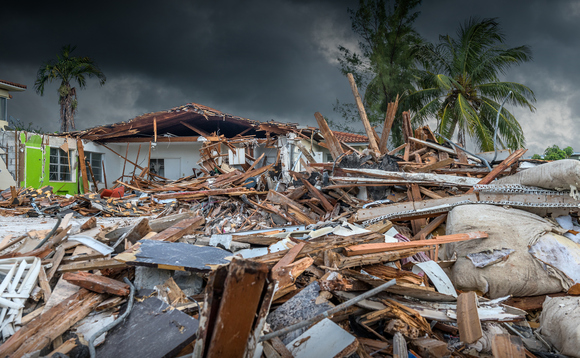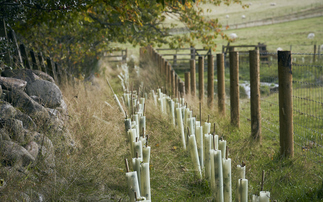But campaigners warn ambitious agreement urgently needed to reform global financial system and accelerate flows of climate finance
The Summit for a New Financial Pact in Paris delivered a series of breakthroughs yesterday, fuelling hopes the two-day meeting could yet culminate in a major new accord designed to boost flows of climate finance into developing economies.
In a major win for Barbados Prime Minister Mia Mottley and her Bridgetown Agenda reform package, the World Bank announced it would introduce new Climate Resilient Debt Clauses to loan agreements with climate vulnerable countries, offering them the opportunity to pause repayments if they are hit by climate-related disasters.
The Bank said it would start by introducing the clause into agreements with its "most vulnerable" borrowers, with a view to then extending the approach to more countries. It also said it would work with insurers and philanthropists to make it more affordable for climate vulnerable countries to access catastrophe insurance.
Announcing the move, World Bank president Ajay Banga said the clauses would allow countries hit by climate disasters to "focus on what matters to their leaders when a crisis hits and stop worrying about the bill that's going to come".
Mottley, who has pioneered the use of debt pause clauses in Barbados, hailed the announcement as a significant step forward for this week's talks.
"Nine months ago, no one was speaking about natural disaster clauses," she said. "Now, we have people wanting to recognise the wisdom of it because countries do need to pause debt payments if they're going to house and feed people who are victims of a climate crisis."
Barbados was one of the first countries to introduce a natural disaster clause when it restructured its debt in 2019, reaching a deal that promises to free up around $700m from debt repayments in the event that the country is hit by a hurricane or other form of natural disaster.
The news was broadly welcomed by campaigners, but there were also concerns that the new clauses would only apply to new World Bank loans and would not be applied retrospectively to existing debt.
Separately, the UK government yesterday announced its UK Export Finance agency is in talks with 12 developing economies about introducing debt pause clauses.
The move was welcomed by Gareth Redmond-King, head of international programme at the Energy and Climate Intelligence Unit (ECIU) think tank, who said: "Covid reminded how damaging it is for poorer countries to have to struggle to repay debts as massive new costs arise. So developing nations will welcome the UK's inclusion of clauses in loan agreements that enable them to stop debt payments when disaster hits."
In addition, the Summit yesterday saw Senegal announce it has become the latest country to ink a Just Energy Transition Partnership (JTEP) with a coalition of industrialised nations.
The deal will see a group of European countries and Canada provide €2.5bn to support the West African nation's efforts to accelerate the roll out of renewable energy projects.
Building on similar agreements reached with South Africa, Indonesia, and Vietnam since the COP26 Climate Summit in 2021, the JTEP will see governments and private investors work together to improve access to finance for renewables projects.
Senegal's president Macky Sall said the investment would help the country deliver on its target to source 40 per cent of its power from renewables by 2030 - a four-fold increase on current levels.
"The multifaceted crises we are experiencing today are straining African economies, particularly in their significant efforts devoted to economic development, access to energy and industrialisation," he said. "Diversifying our energy sources and our supply chains will increase our resilience. The partnership that we are establishing today will make it possible to support the Senegalese dynamic that we started several years ago of incorporating renewable energies into our energy mix and securing our energy system thanks to all our natural resources."
In related news, the UK and France also announced the launch of a new 'Roadmap on Biodiversity Credits' designed to catalyse the emerging market for biodiversity offset schemes and make it easier for the private sector to invest in nature protection projects.
More than 40 world leaders are expected in Paris today, with talks on-going to deliver a new accord ahead of the Summit's scheduled close this evening.
Observers are hoping the talks can deliver further breakthroughs on other aspects of Mottley's Bridgetown Agenda, which calls for wider reforms to the governance of the international financial system and the remits of multilateral development banks.
Reports suggest there could be further progress on reforms to the International Monetary Fund's 'special drawing rights' to make it easier for developing countries to access funds for climate-related projects, while the EU and others are continuing to call for new rules that could enable an expansion of carbon offset markets that could help mobilise more private investment in emissions reduction efforts.
Meanwhile, poorer nations are calling for industrialised nations to honour their long-standing promise to provide over $100bn of climate finance a year.
Hopes an agreement could be reached were given a boost on the eve of the Summit when over a dozen world leaders, including leaders from the US, UK, EU, France, Germany, South Africa, Brazil, and the UAE, signed an open letter that broadly backed many of the reforms proposed by the Bridgetown Agenda.
Redmond-King said a breakthrough at the Paris meeting that helps to mobilise increased levels of climate finance could ease the deadlock that continues to marr climate negotiations ahead of this year's COP28 Climate Summit in Dubai.
"Macron's summit in Paris is playing with big stakes as we head to the next round of climate talks in Dubai in December," he said. "Wealthy nations' 14-year-old pledge of £100bn a year to support poorer nations to deal with climate change is still way overdue. This threatens trust, which is so crucial to any negotiations. And whilst Japan has offered 40 per cent of their International Monetary Fund special drawing rights to developing nations, and France signalled 30 per cent, Britain has offered just 20 per cent - at a time when we have also reduced our overseas development assistance, and are redirecting significant proportions of it into the UK itself.
"All of this comes as climate impacts worsen, with El Niño intensifying those, all over the world. We import half our food, and nearly half of that comes from climate impacts hotspots. At a time of rising food prices driving inflation, financial assistance overseas not only supports and helps people in countries affected, but secures and protects our own food supplies against climate disaster-driven shortages and further prices rises."
BusinessGreen readers can sign up now for their free pass to this year's Net Zero Festival.









